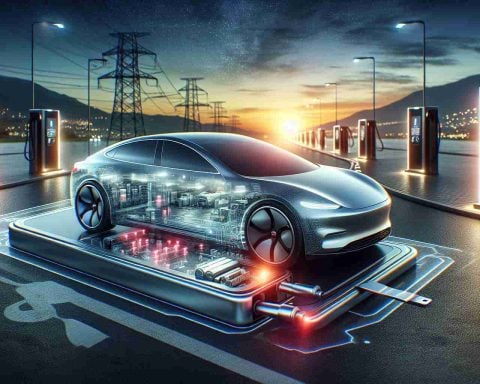Colorado is gearing up to revolutionize electric vehicle travel, with the first charging stations set to begin operations in 2025. As part of the National Electric Vehicle Infrastructure (NEVI) Grant program, the state is receiving a generous $57 million in federal funding through 2026. This initiative aims to expand the availability of electric vehicle chargers throughout Colorado.
The NEVI program is a key aspect of the 2021 Bipartisan Infrastructure Law, which allocates $5 billion for developing a comprehensive network of public EV charging stations nationwide. In Colorado alone, this funding is expected to facilitate the creation of 168 fast charging ports across 29 locations. State officials are committed to investing an additional $48 million to ensure the success of this initiative.
The executive director of the Colorado Energy Office noted that this partnership between state and federal resources will significantly enhance access to charging facilities. It aims to support the increasing number of Coloradans transitioning to electric vehicles, which are projected to save money on fuel and maintenance in the long run.
Looking ahead to 2050, Colorado envisions a future where nearly all light-duty vehicles are electric, targeting an impressive total of 940,000 electric vehicles on its roads by 2030. With over 161,000 EVs currently in use, the challenge remains to increase this figure by an average of 156,000 additional electric vehicles annually.
Colorado’s EV Charging Stations Set to Transform the Travel Landscape by 2025
Colorado’s Electric Vehicle Initiative
Colorado is poised to make a significant impact on electric vehicle (EV) travel with the upcoming launch of its charging stations in 2025. This initiative is part of the National Electric Vehicle Infrastructure (NEVI) Grant program, which has granted the state $57 million in federal funding through 2026. This funding is intended to expand the network of public charging stations throughout Colorado, addressing the critical need for infrastructure as the adoption of electric vehicles increases.
NEVI Program Context
The NEVI program is a crucial component of the Bipartisan Infrastructure Law enacted in 2021, which allocates a total of $5 billion to develop a nationwide network of public EV charging stations. Colorado’s allocation will facilitate the establishment of 168 fast charging ports across 29 strategic locations in the state. To further bolster this initiative, state officials plan to invest an additional $48 million, demonstrating a strong commitment to enhancing the state’s EV infrastructure.
Anticipated Benefits and Goals
The collaboration between state and federal resources is expected to dramatically increase access to charging facilities, which is vital for supporting the growing number of Coloradans transitioning to electric vehicles. The benefits of switching to an EV include significant savings on fuel and maintenance costs over time.
Looking ahead, Colorado has set ambitious goals for its electric vehicle fleet. By 2050, state planners envision that nearly all light-duty vehicles on the road will be electric, with a goal of having 940,000 electric vehicles by 2030. Currently, Colorado has over 161,000 registered electric vehicles, but achieving this target means increasing the EV registry by approximately 156,000 vehicles annually.
Pros and Cons of Electric Vehicle Adoption in Colorado
Pros:
– Environmental Impact: The shift to electric vehicles will significantly reduce greenhouse gas emissions.
– Cost Savings: Owners can save on fuel and maintenance costs with EVs compared to traditional vehicles.
– Federal Support: Initiatives like NEVI provide funding and resources to build charging infrastructure.
Cons:
– Initial Costs: The upfront cost of electric vehicles can be higher than that of gasoline vehicles.
– Charging Infrastructure: Although there are plans to expand, access to charging stations may still be limited in some rural areas initially.
– Battery Life and Disposal: Concerns about battery lifespan and the environmental impact of disposal remain pertinent.
Market Insights and Trends
The EV market is experiencing a robust growth trend, driven by technological advancements, increasing environmental awareness, and government incentives. According to recent reports, the global electric vehicle market is projected to reach $800 billion by 2027, reflecting a compound annual growth rate of more than 20%.
With the current trajectory, states like Colorado will play a pivotal role in the broader transition to electric mobility. This aligns with global sustainability efforts as countries introduce stricter emissions regulations and push for renewable energy sources.
Conclusion
Colorado’s initiative to roll out extensive EV charging infrastructure by 2025 is a forward-thinking approach that addresses both environmental and consumer needs. By leveraging federal funds and state investments, Colorado aims to create a robust framework for electric vehicle usage, ultimately leading to a cleaner and more sustainable future.
For more information about Colorado’s energy initiatives, visit the Colorado Government.
















